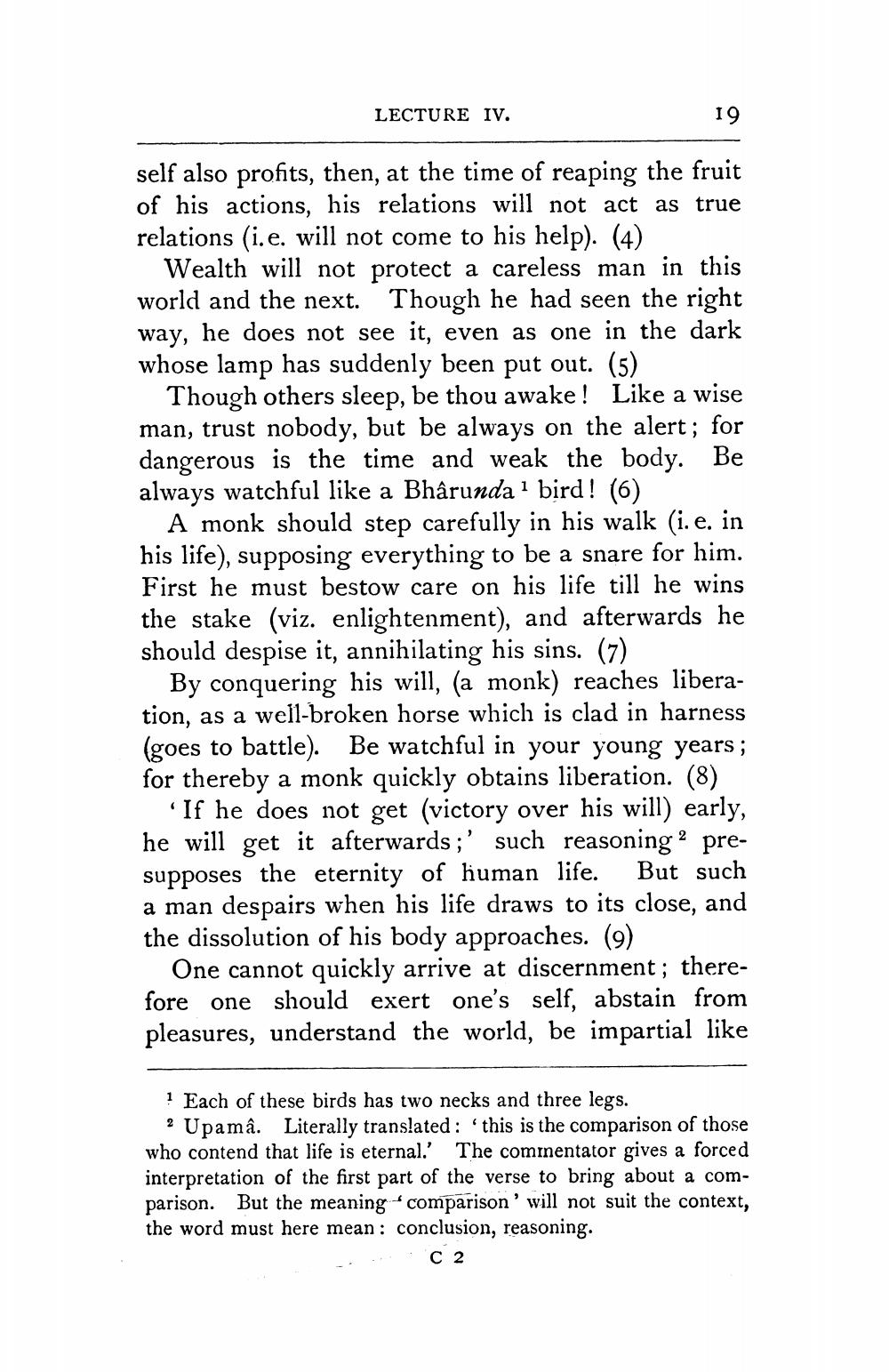________________
LECTURE IV.
self also profits, then, at the time of reaping the fruit of his actions, his relations will not act as true relations (i.e. will not come to his help). (4)
Wealth will not protect a careless man in this world and the next. Though he had seen the right way, he does not see it, even as one in the dark whose lamp has suddenly been put out. (5)
Though others sleep, be thou awake! Like a wise man, trust nobody, but be always on the alert; for dangerous is the time and weak the body. Be always watchful like a Bhârunda 1 bird! (6)
A monk should step carefully in his walk (i. e. in his life), supposing everything to be a snare for him. First he must bestow care on his life till he wins the stake (viz. enlightenment), and afterwards he should despise it, annihilating his sins. (7)
By conquering his will, (a monk) reaches liberation, as a well-broken horse which is clad in harness (goes to battle). Be watchful in your young years; for thereby a monk quickly obtains liberation. (8)
'If he does not get (victory over his will) early, he will get it afterwards ;' such reasoning 2 presupposes the eternity of human life. But such a man despairs when his life draws to its close, and the dissolution of his body approaches. (9)
One cannot quickly arrive at discernment; therefore one should exert one's self, abstain from pleasures, understand the world, be impartial like
1 Each of these birds has two necks and three legs.
? Upamâ. Literally translated : 'this is the comparison of those who contend that life is eternal. The commentator gives a forced interpretation of the first part of the verse to bring about a comparison. But the meaning comparison' will not suit the context, the word must here mean: conclusion, reasoning.
..EC 2




